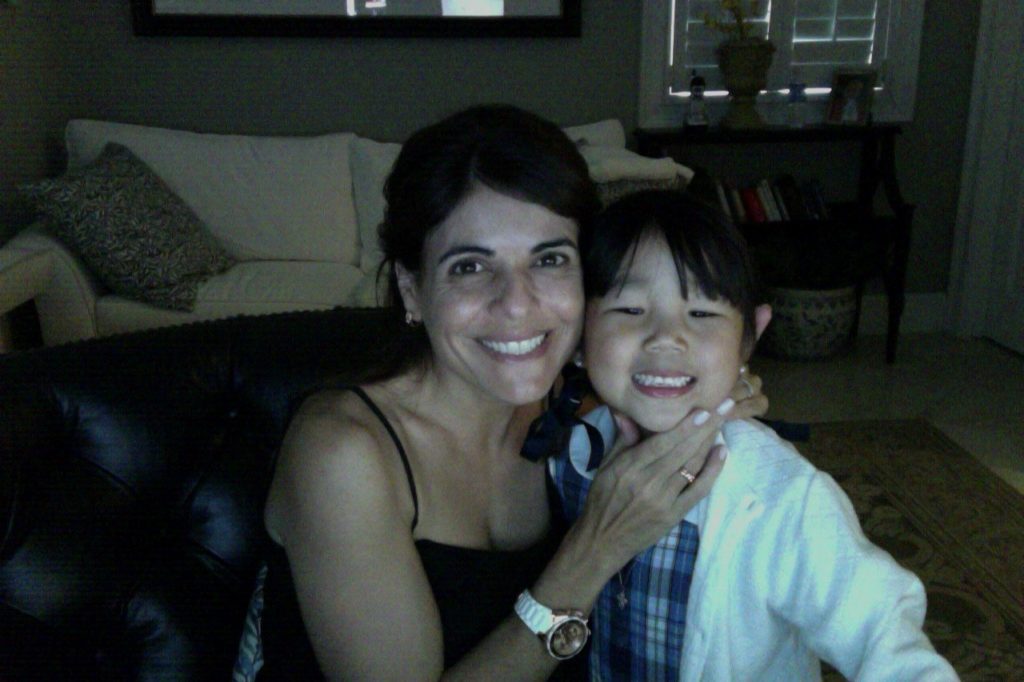When I traveled to China to adopt our fifth child, I was part of a group of a dozen families, all adopting from the same orphanage. We spent almost three weeks together, sharing what may be the most moving experience of a lifetime.
I was the odd one in the group, as I was adding a fifth child to our family. The other families were all very small — just couples, in fact — who were going to China to become parents after biology had failed them.
If receiving my fat-cheeked little one was bliss for me, I can’t begin to understand what it was like for these good people who had been aching for a child for many years.
I learned many things on that adoption trip, but one thing that has stayed with me vividly is the pain of infertility. Some of the couples had been married and “trying” to have a baby for 10 years, some even more.
The women described to me the disappointment they experienced every single month, recurrent grief surpassed only when short pregnancies ended in miscarriage. They told me about their sense of failure, and how they felt set apart from “normal” couples whose families seemed to grow effortlessly around them through the magic of biology.
One new friend spoke to me about her great hunger for a child, a spiritual longing which was so strong that it felt physical, like the need for food after a long fast.
Of course, all of them talked about prayer, and how this adoption was clear proof that there was a God and that he loved them.
It made me think that, unlike the craving for material goods, the desire for children has a sacred quality about it, and drives the infertile straight to the mercy of God. The one who prays for a child is the creature longing for the best of gifts from the Creator, a gift that is at the same time an everyday occurrence and a miracle.
Its miraculous character is best revealed when it is inexplicably absent, the same way we would quickly stop taking the sun for granted if it failed to rise after a long night.
The Bible — the best chronicler of the human condition — is full of the pathos of infertility and decades of prayers finally answered: Abraham and Sarah, Isaac and Rebekah, Jacob and Rachel, and Elisabeth and Zachariah, to name a few.
Those biblical stories of near-despair are set in a culture that revels in life and rejoices when it is abundant. “Thy wife shall be as a fruitful vine by the sides of thine house; thy children like olive plants round about thy table,” (Psalm 128:3) the psalmist sings.
The image is that of a garden so lovingly guarded, so gently treated, that the vines and trees are heavy with the fruits that bring joy.
Or, if you prefer a more martial and vigorous metaphor: “Like arrows in the hand of a warrior, so are the children of one’s youth. How blessed is the man whose quiver is full of them.” (Psalm 127:4) The image is that of sons and daughters as defense for their families against the hard realities of this world — against loneliness and illness, displacement, and violence.
Human nature remains the same, thousands of years later. Deep inside each of us is a built-in desire for the happiness and safety children bring, for the way they connect us intimately to the human family, and for the satisfaction of knowing the future will be enlivened by our descendants.
But modern culture drives a deep wedge between each of us and the possibility of a “quiver-full” of children. For those who marry while young and fertile, a large family can be a practical near impossibility. There is little societal allowance for more than two children, what with the costs of housing and education, and what is felt as the absolute need for two incomes.
Another wedge is the way marriage, defined as the permanent and faithful union of one man and one woman, is disappearing in the rearview mirror. People are marrying later and later, if at all, and demographic trends show childbearing in free-fall, as infertility (both biological and social) rises rapidly.
And behind each point in the statistical analysis are people living with the ache for more children, or even just one child.
During my time in China I was fortunate to watch years of wanting and hoping come to glorious conclusion for my travel companions.
At the social welfare institute where the toddlers were handed to their new mothers and fathers, decades of prayers were answered in the shape of daughters, mostly, who held in their little hands whole futures of happiness for their weeping parents.
I was almost as happy, I think, because God was putting another straight and shining arrow in my quiver, and I knew just how much gladness was in store for me.

